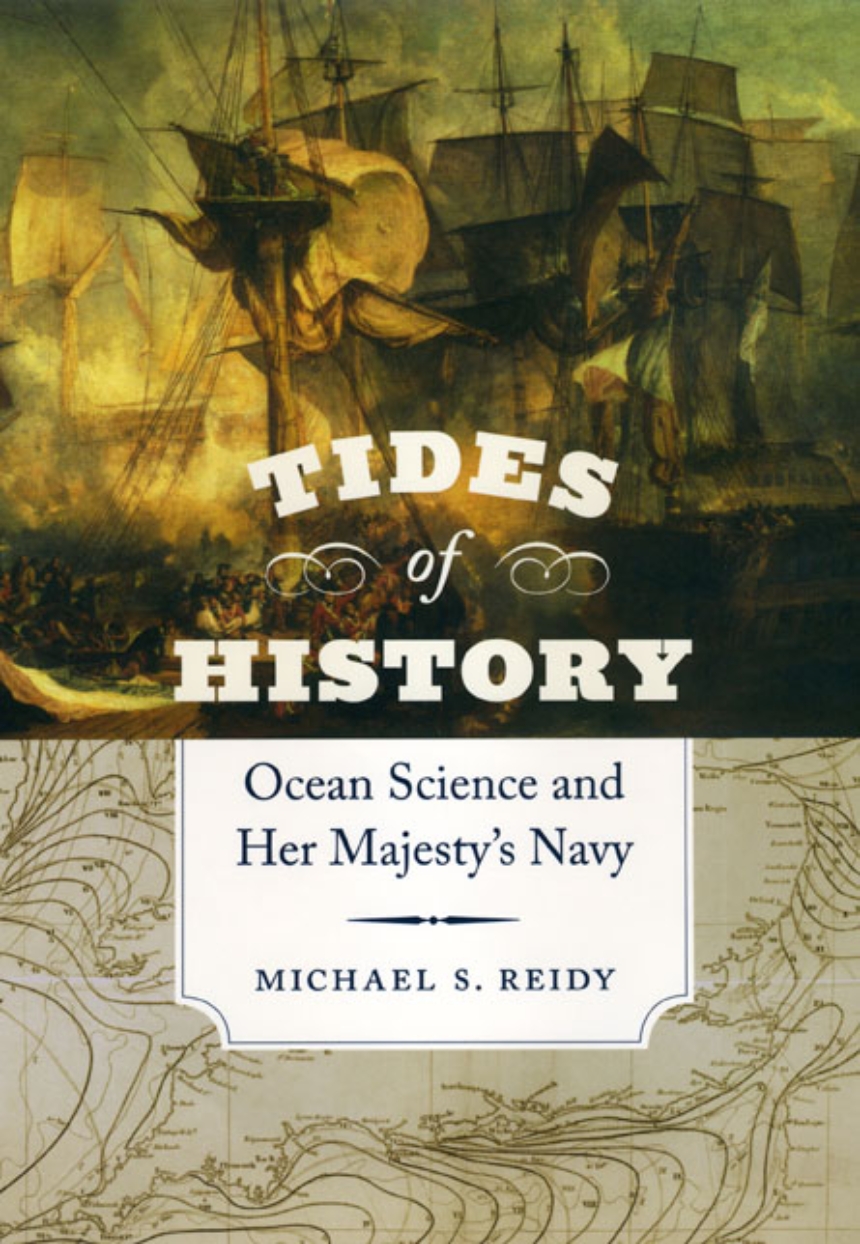Tides of History
Ocean Science and Her Majesty’s Navy
In the first half of the nineteenth century, the British sought to master the physical properties of the oceans; in the second half, they lorded over large portions of the oceans’ outer rim. The dominance of Her Majesty’s navy was due in no small part to collaboration between the British Admiralty, the maritime community, and the scientific elite. Together, they transformed the vast emptiness of the ocean into an ordered and bounded grid. In the process, the modern scientist emerged. Science itself expanded from a limited and local undertaking receiving parsimonious state support to worldwide and relatively well financed research involving a hierarchy of practitioners.
Analyzing the economic, political, social, and scientific changes on which the British sailed to power, Tides of History shows how the British Admiralty collaborated closely not only with scholars, such as William Whewell, but also with the maritime community —sailors, local tide table makers, dockyard officials, and harbormasters—in order to systematize knowledge of the world’s oceans, coasts, ports, and estuaries. As Michael S. Reidy points out, Britain’s security and prosperity as a maritime nation depended on its ability to maneuver through the oceans and dominate coasts and channels. The practice of science and the rise of the scientist became inextricably linked to the process of European expansion.
Analyzing the economic, political, social, and scientific changes on which the British sailed to power, Tides of History shows how the British Admiralty collaborated closely not only with scholars, such as William Whewell, but also with the maritime community —sailors, local tide table makers, dockyard officials, and harbormasters—in order to systematize knowledge of the world’s oceans, coasts, ports, and estuaries. As Michael S. Reidy points out, Britain’s security and prosperity as a maritime nation depended on its ability to maneuver through the oceans and dominate coasts and channels. The practice of science and the rise of the scientist became inextricably linked to the process of European expansion.
392 pages | 61 halftones | 6 x 9 | © 2008
Earth Sciences: Oceanography and Hydrology
Geography: Cultural and Historical Geography
History: British and Irish History
